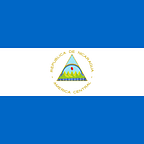My First Time Voting Was My Last Time Voting
As a Nicaraguan, my vote means nothing — so please listen to me
There I was, 16 years old, not old enough to drink but old enough to vote. I had just received my government-issued ID and voting was one of the things for which I could use it. It felt cool. For the first time in my life, I was going to “exercise my constitutional right.” It was 2008.
But my first time voting was also my last time voting. And not by choice.
The process seemed quite normal at the beginning. A bunch of people dressed in white t-shirts, the most neutral dresscode; people forming lines… I was given a ballot and I proceeded toward the private “cubicle” where I would select my candidate on the ballot. I got my finger “inked” (this is their way of controlling who has already voted. Of course, you can wash the ink off…). The most amazing 2 minutes. The results were posted publicly at the end of the day. It almost felt so transparent; in my neighborhood, a candidate for mayor had defeated the incumbent candidate from the ruling political party (the Sandinistas) by a landslide. The results were like 300 to 50 in my “box.” (See caption)
Now, this is Nicaragua we are talking about so by now you may already know how the story ends. But this is the moment when everything started to collapse. Perhaps we just didn’t know it yet. That day, the Sandinista party quickly took over the streets. They had prearranged an early celebration for the first results of the night. They gathered in what they named that day La Plaza de La Victoria (The Victory Plaza). It’s not even a plaza. It’s an intersection in the main street of Managua.
“Through fear and violence, the opposition was silenced.”
As the ruling party, they changed the results that day. They stole the election. I was young and naive and I couldn’t believe it. Instead of the 300 to 50 result in my voting zone’s box, the number was changed to 300 to 450. This same pattern happened all over the country. They “took” 146 of 153 municipalities. Fraud was well-documented; they didn’t even try to hide it. And when people started to protest, of course, armed thugs with masks and steel pipes came down to beat peoples’ asses.
Through fear and violence, the opposition was silenced.
With this (first of many) fraud they were able to establish full control of the country. One single party now ruled the municipal governments, the entity that organized voting, the executive branch, the congress, the justice system, and law enforcement. The recipe for a dictatorship .
Every other election after 2008 was a shitshow — dead people voting, government workers voting in a dozen places, puppet candidates to pretend there was an opposition party, the wife of the president running for vice-president. This is a circus put on by the Sandinistas where they pretend there are elections and pretend there are “candidates.” They always win by a landslide.
Nobody even takes them seriously anymore. In the last election, people barely showed up to vote: instead, they gathered to drink liquor as a protest against the ley seca (no alcohol sales allowed) that had been enacted during election day.
Many times I feel that living in Nicaragua is surreal. It’s like living as a character in a movie about a place where nothing makes sense.
I wish I could tell my sixteen year old self how important that election was. How that day was the beginning of the end.
Today, as Nicaraguans, our only dream is to vote — to really vote. To have real democracy, to select our leaders, to feel we have a say, to put an end to this dictatorship, to stop police violence, to let the exiled return back home, to release the political prisoners, to seek justice for the families of the murdered students, to have freedom of speech, to be able to go out with the Nicaraguan flag without being arrested.
Reinstating our right to vote and the legitimacy of our elections is just the start. But it’s a necessary one.
For more, follow Contrasts
